Camping is a fun way to spend time outside with family, friends, or yourself. You can go camping in many state and national parks, private campgrounds, the backcountry, or even in your backyard. Most campsites have a place to park your car, a picnic table, and a place to set up your tents. Many also have bathrooms and water that are shared. Camping is fun partly because you only need a little gear to be outside. But it’s nice to have a campsite that is comfortable, easy to get to, and feels like home. If you’ve never been camping, you should borrow or rent some. As you go camping more, it’s part of the fun to figure out what you need to be packing. Use the camping checklist as you pack to ensure you remember everything necessary and have enough of what you need.
Shelter & Sleep System
Your sleeping system comprises a tent, a sleeping bag, and a sleeping mat. If you forget one or both of these things, it could ruin your trip, so make sure your camping sleeping system is in good shape before you leave.
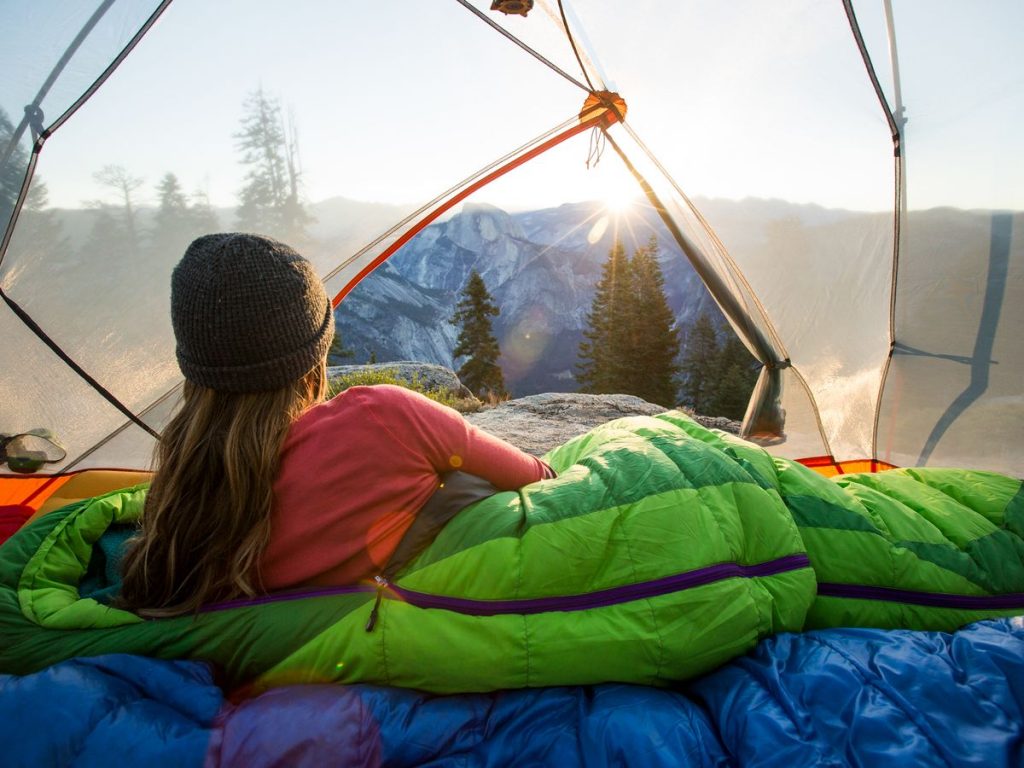
Camping Tent
You will need a tent. A tent protects you from wind, rain, morning dew, and insects. While there are alternative accommodations, such as hammocks and bivvies, a tent is the most practical option for the vast majority of recreational campers.
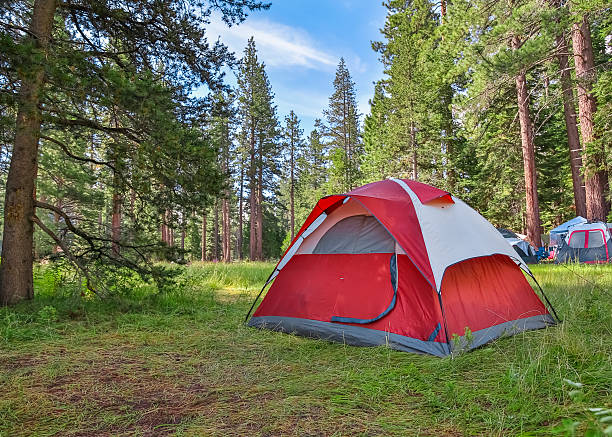
Camping Mattresses
A mattress for camping does two things. It keeps you from getting cold and cushions between you and the floor. You can choose between full-size air mattresses that look like beds or individual air pads to sleep on.
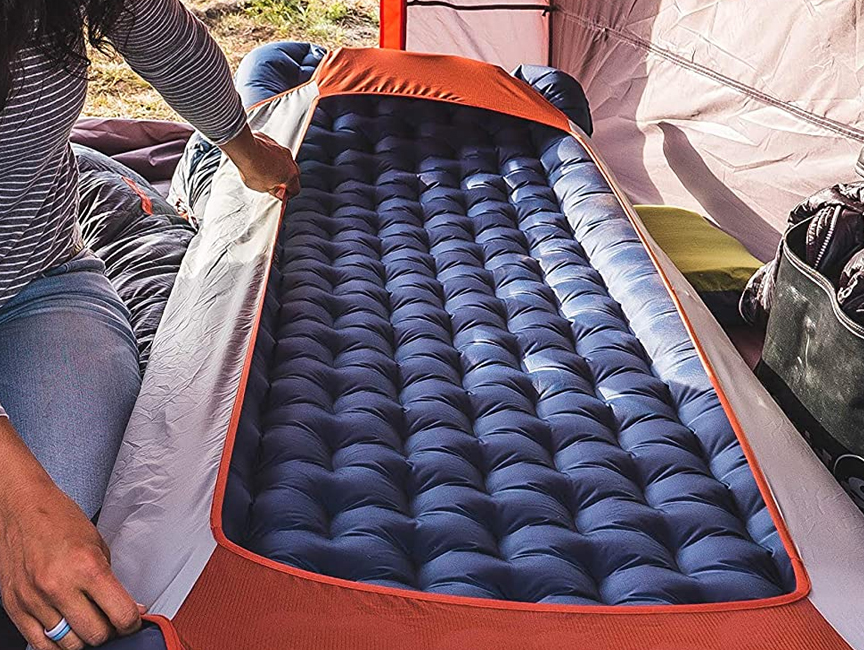
The UST Fillmatic is by far the best sleeping pad. It’s the most comfortable sleeping pad, has an R-6 insulation value, and doesn’t break the bank. If you want an air mattress that feels like a bed, the Kingdom Insulated Air Bed has 6 inches of padding so that two people can sleep comfortably. Or, if you often camp in colder weather, the ExPed Mega Mat Duo, which has an R-value of 10, is a good choice.
Pillows
A mattress for camping does two things. It keeps you from getting cold and cushions between you and the floor. You can choose between full-size air mattresses that look like beds or individual air pads to sleep on.
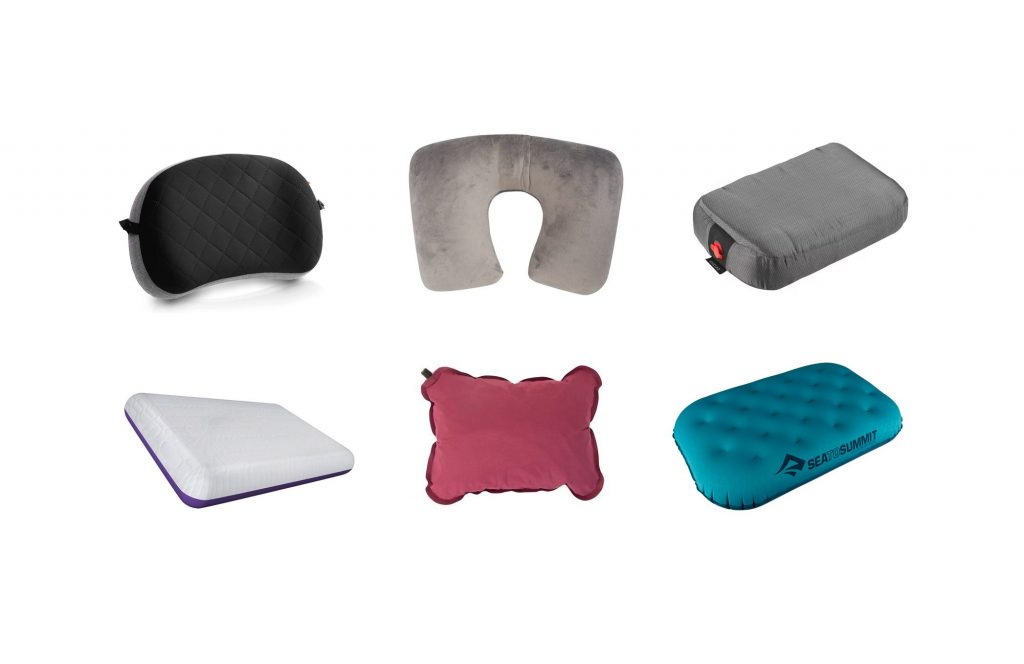
Since most people already have bed pillows at home, they often need to be remembered. So use our list to make sure you get them all. But pillows from home are more comfortable on car camping trips.
Camp Kitchen & Food
Your camping kitchen can be set up in many different ways. We’ll talk about what you need in your camping kitchen below.
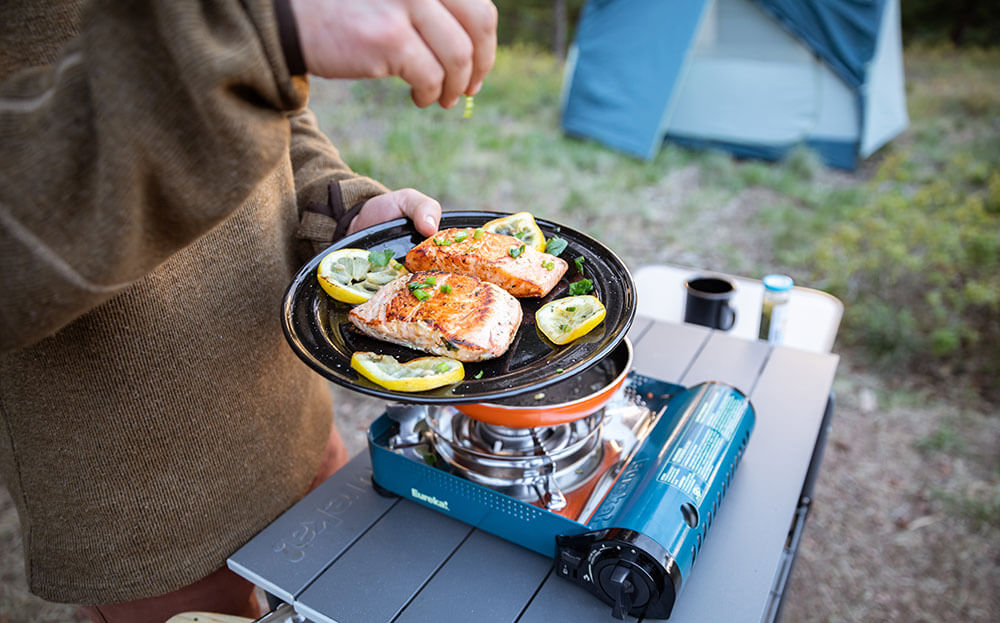
Cooler
You need a good cooler to bring fresh food to your campsite and keep perishable foods safe. It is possible to buy a cooler, even if you are just starting or are on a tight budget. If you pack it right and only go camping for a weekend, you can get by with a cheaper cooler.
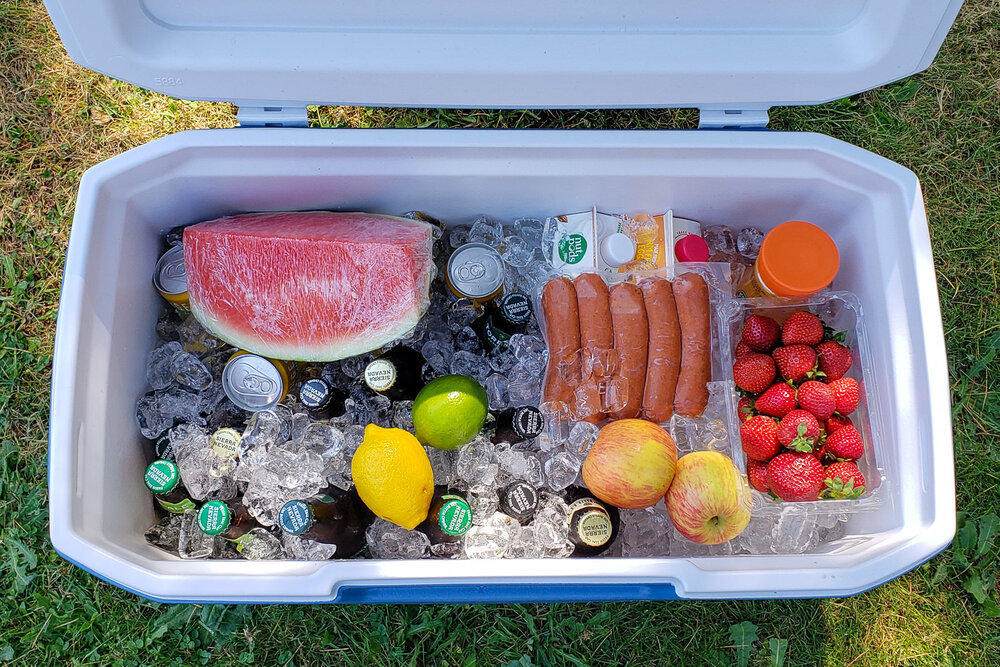
Water Containers
Having Containers that can be filled up at your campsite is helpful. You can quickly get water to cook with and clean with.
Camp Stove & Fuel
With the camp stove, you can cook tasty meals that taste like they were made at home.
But the Camp Chef Everest is an excellent two-burner camp stove. If you camp a lot, you should buy a propane tank that you can use again and again instead of using disposable green gas canisters. This 4.5L Ignik Gas Growler ensures you have enough gas to get where you’re going.
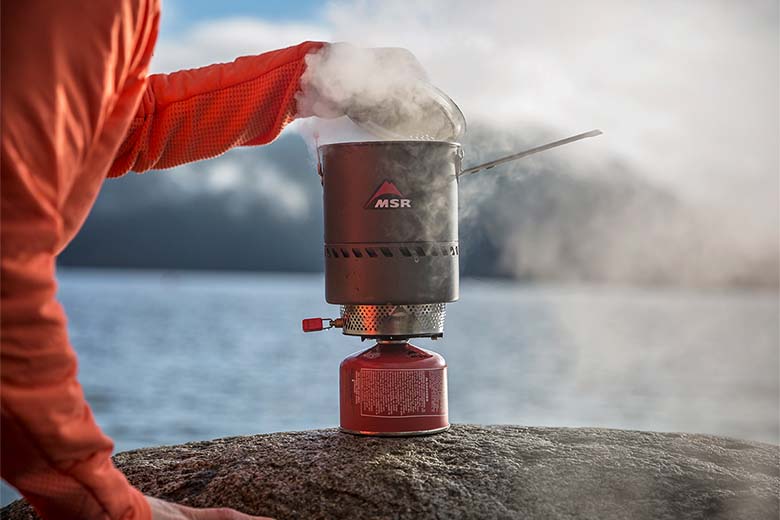
Pots And Skillets
Plan your meals and write down how many pots and pans you need. If you’re making simple meals, you only need one pot and one large pot.
Knives And Cutting Boards
It’s best to use a full-sized, fixed-blade chef’s knife to prepare camp food. It gives us more control and fits our hands better than a small, bent blade. You can bring your own or buy a camping knife to ensure you always remember it. This knife is great because it has a safe sheath that locks. This makes putting the silverware away safer and keeps the blade from rusting.
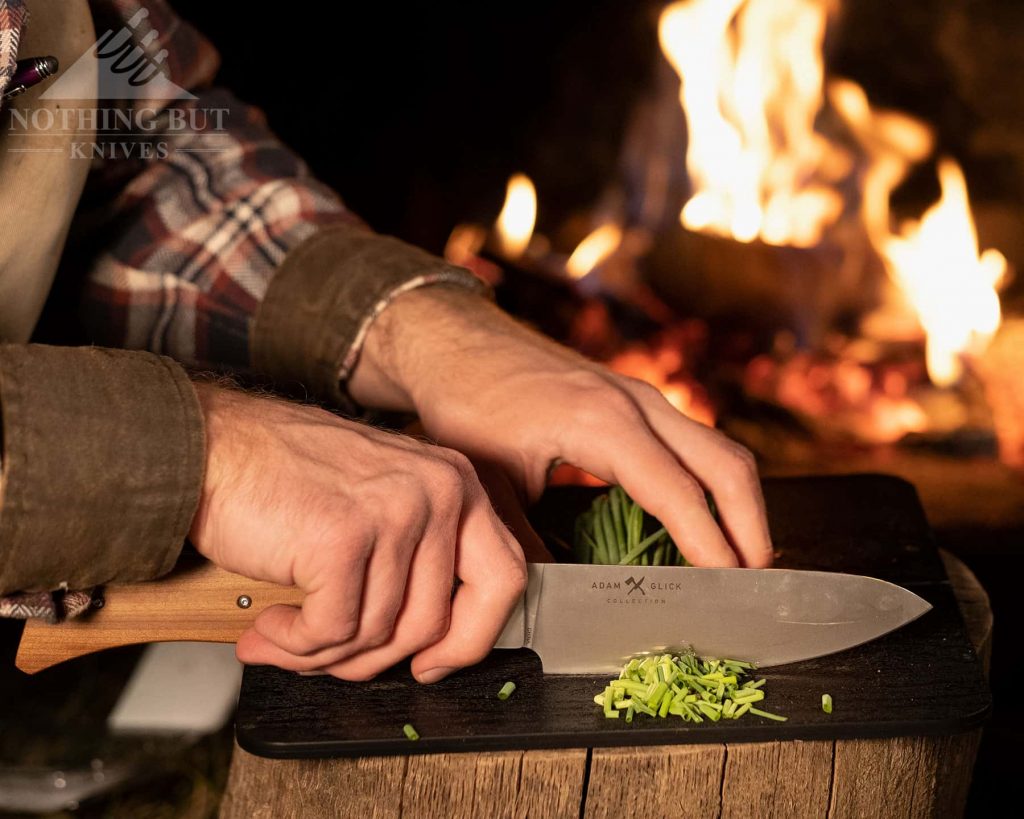
Cooking Equipment
You should bring some of these from home and buy camping-specific versions of others so you always have them in your kitchen pantry.
Spatula
Tongs
Large spoon
Ladle
Whisk
Strainer
Cheese grater or microplane
Can opener
Bottle opener/corkscrew
Measuring cups
Pot holder
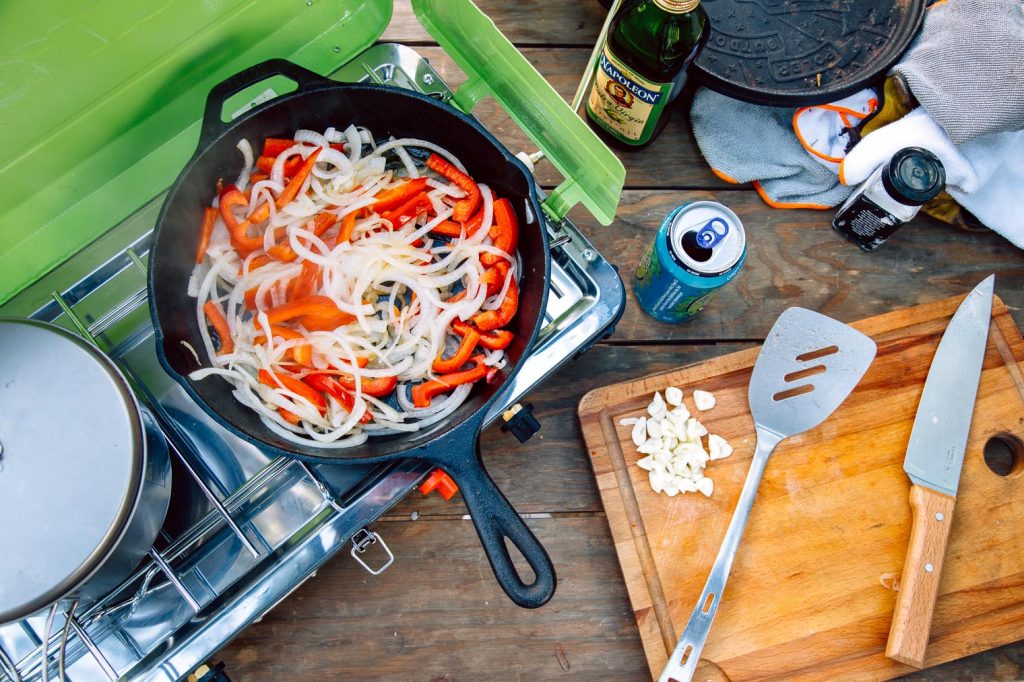
Camping Coffee Maker
Nothing is better than a slow morning at camp with a hot cup of coffee. Aeropress is the best way to make coffee for one to two people. We recommend a stove-top percolator for large amounts.
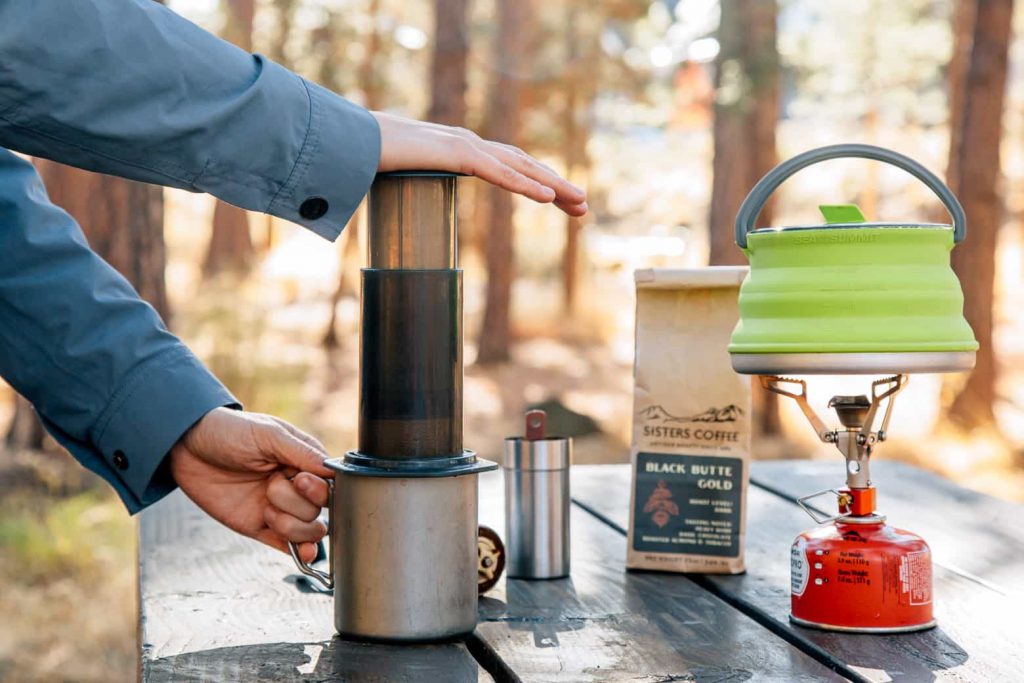
Serving And Tableware
Packing serving and tableware while camping for each person, you’ll need to pack a small bag with the things they’ll need: a plate, a bowl, a cup, and some cutlery. To plate your food, you will need spoons and tongs, of course.
Choose dishes that aren’t too heavy and won’t break when you carry your camper box around. Hydro Flask’s Tumblers are the best drinkware you can get. They come in different sizes and do a great job of keeping both hot and cold drinks hot or cold.
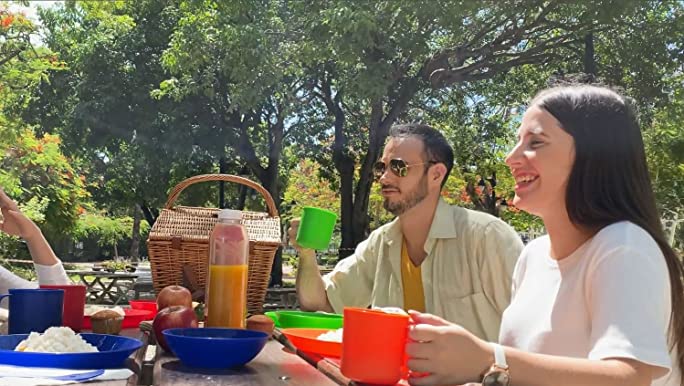
Containers For Leftovers
You can use leftovers for quick lunches or at your next dinner party. Bring some Tupperware with you. Then you can put leftovers in the cooler instead of giving out too much food or throwing things away.
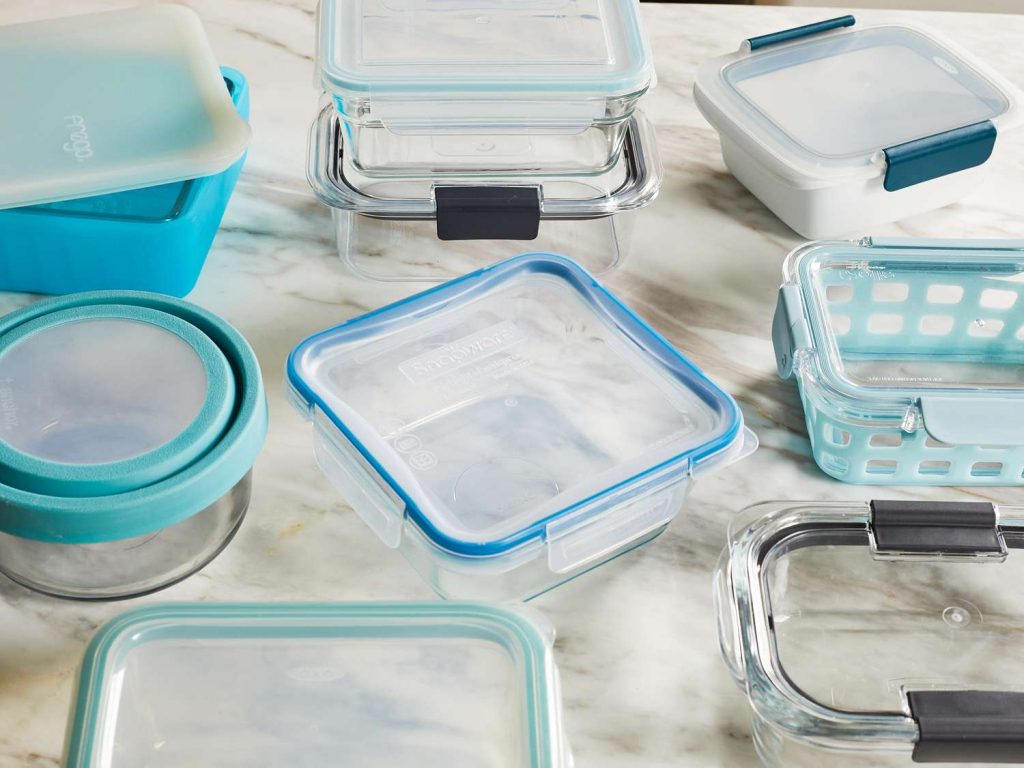
Camping Food
Last but not least, you’ll want to plan an excellent camping menu, so you have lots of tasty dishes to look forward to on your trip.
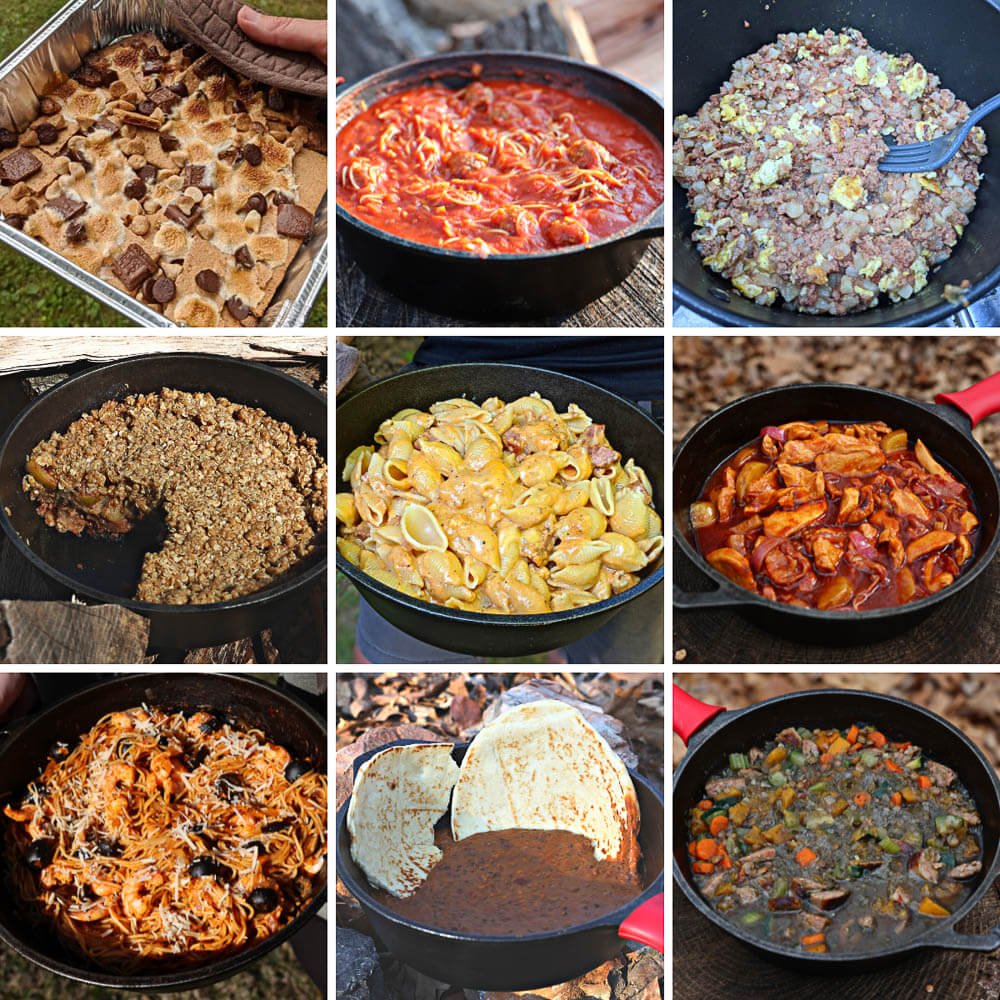
Campsite Packing Essentials
Camp Chairs
A comfortable camp chair is a must-have at any campsite, whether it rocks, swivels, has a built-in cooler, or is set up for chilling.
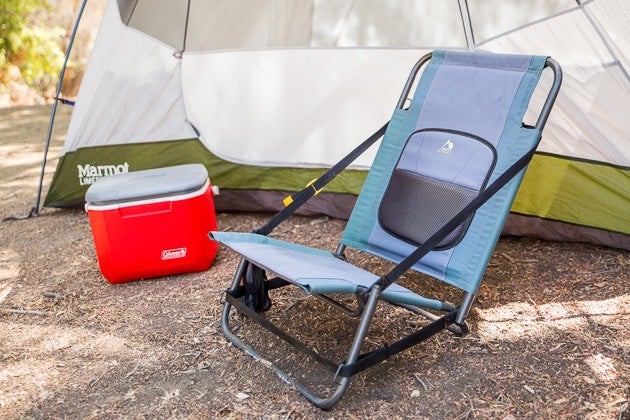
Camp Table And Tablecloth
Most developed campsites will have picnic tables and benches, but if you want free camping or boondocking, you’ll need to bring your own. Sometimes the picnic table needs to be in the best spot and be too heavy to move. In those cases, it’s great to have a portable table to move to a better spot. A tablecloth might be useful and should be brought along. When it’s time to clean up at the end of the night, a tablecloth can help.
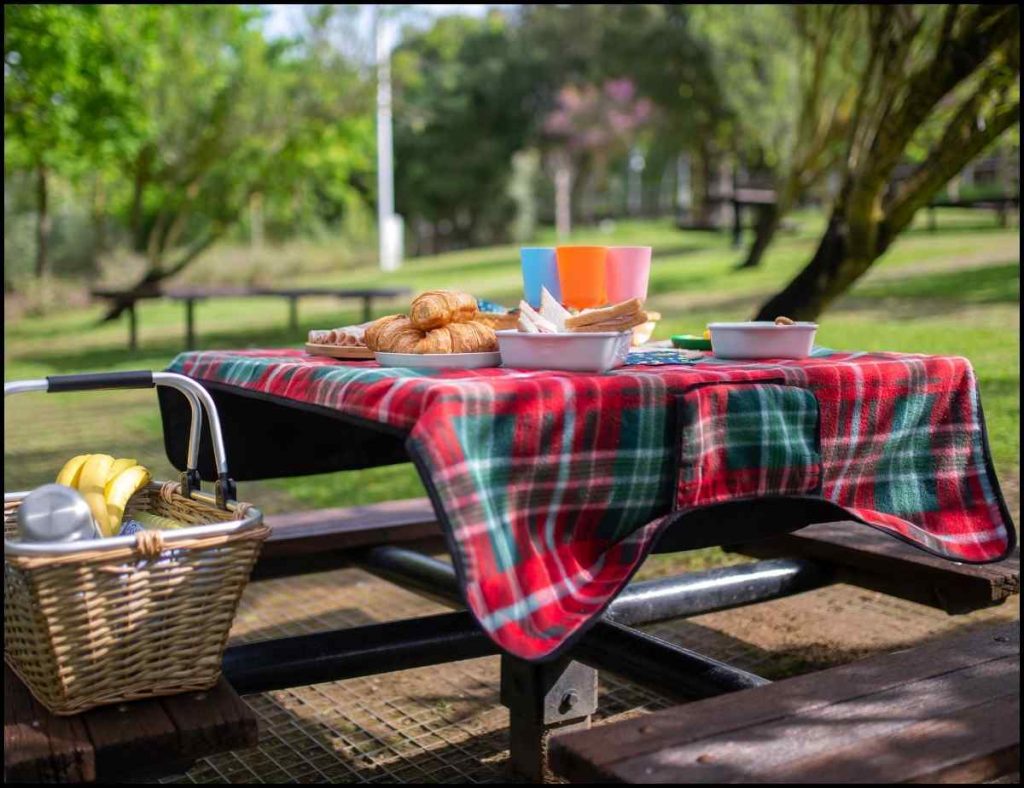
Lighting
After dark, you can hang out at camp with a small lantern. The battery-powered Moji lanterns or USB-rechargeable reMoji lanterns from Black Diamond can be hung from the ceiling or on your picnic table. A headlamp can help you get around camp or get to the bathroom. The BioLite HeadLamp 200 is a USB-rechargeable headlamp that can be used for up to 40 hours. This is light enough to bring with us hiking or backpacking.

Sunshade/Rain Shelter
A sunshade or rain shelter can make your camping trip more comfortable if it’s going to rain or if it’s going to be sunny and warm and there aren’t many trees nearby.
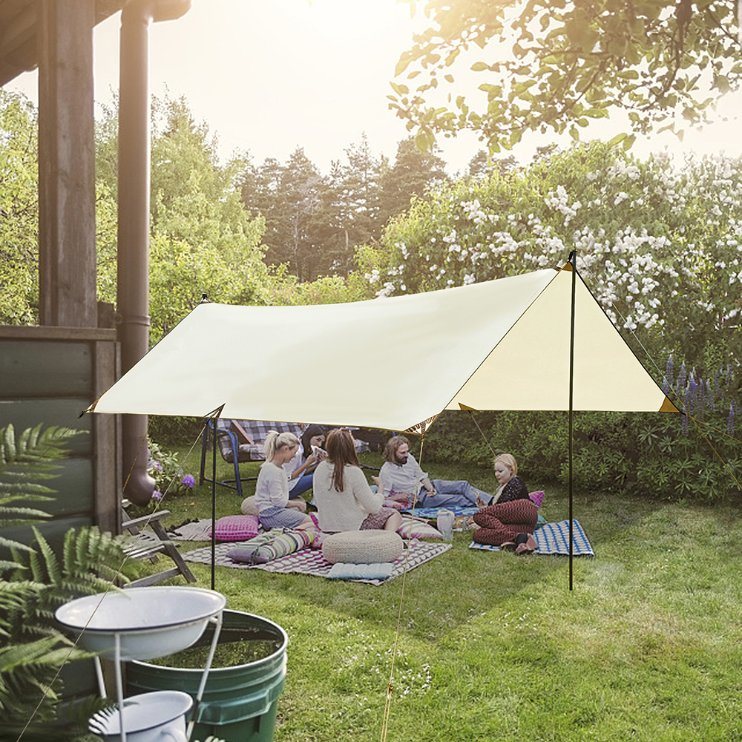
Rug Or Doormat
Setting up a doorway at the entrance of your tent gives you a place to wipe off your shoes, which reduces the amount of dirt you bring into your tent. A sunshade or rain shelter can make your camping trip more comfortable if it’s going to rain or if it’s going to be sunny and warm and there aren’t many trees nearby.
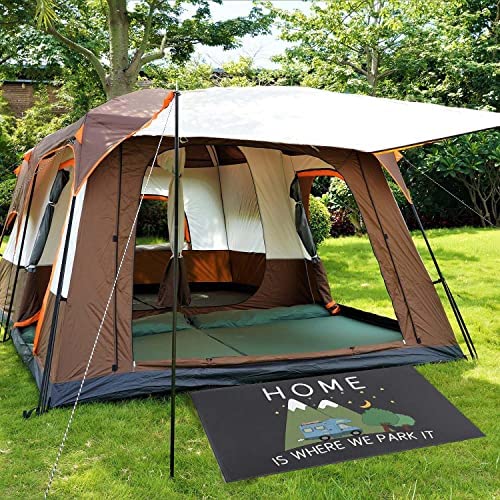
Camping Clothes List
This section of your camping packing list will be determined by the season, weather, and environment you’re camping in. Take some time to look up the weather forecast, think about the activities you’ll be doing, and then build your wardrobe. Having layers is always a good bet, too! Here is an essential packing list to get you started.
T-shirts
Light layering pieces
A raincoat
A sweater, hoodie, or fleece pullover
Thick socks, preferably made of wool
Pants and shorts
Pajamas
Underwear
A swimsuit or swimming trunks
A wide-brimmed sunhat or visor
A beanie or knit cap
Gloves
Sunglasses
Shower shoes
Hiking boots
Rain boots
Walking shoes
Sandals or flipflops
Safety, Hygiene, And Toiletries
Keep a few things in mind as you go through this part of your camping packing list. What kind of amenities do you have at your campground? For example, if it doesn’t rain, you might want to add “sun/solar shower” to your list. If you’re camping and there aren’t any bathrooms nearby, you’ll need to be prepared.
Toiletries
The best size for putting in bins is travel size. Using refillable squeeze containers like GoToobs, you can make minor versions of some of your favorite products to take with you. Here is a list of the most important things.
Toothbrush
Toothpaste
Floss
Lip balm
Sunscreen
Insect repellant
Deodorant
Lotion
Hand soap or hand sanitizer
Shower supplies (shampoo, etc)
Shower shoes
Medications
Trowel and toilet paper
First Aid Kit
Bring a first aid kit with bandages, things to clean and treat wounds, sterile gauze and pads, and over-the-counter medicines like ibuprofen or Tylenol, Imodium, and antihistamines.

Gear Repair Kit
If your air mattress or tent leaks, it can be beneficial to have a few repair items in your camping box; be sure to put that into your packing list.
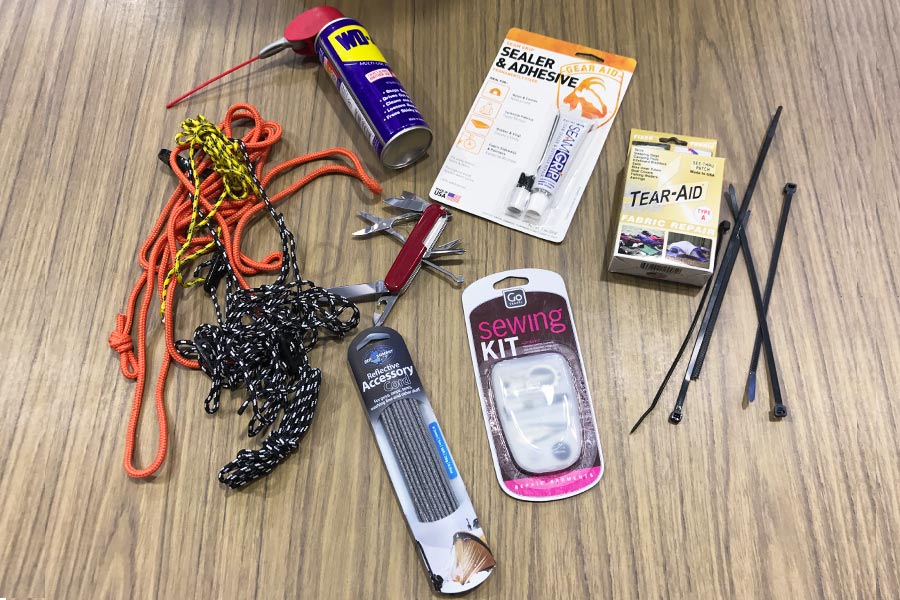
Clothesline And Clips
This is extra, but towels, dishcloths, clothespins to dry clothes, and some clips are acceptable. It’s a good choice for families with young children.
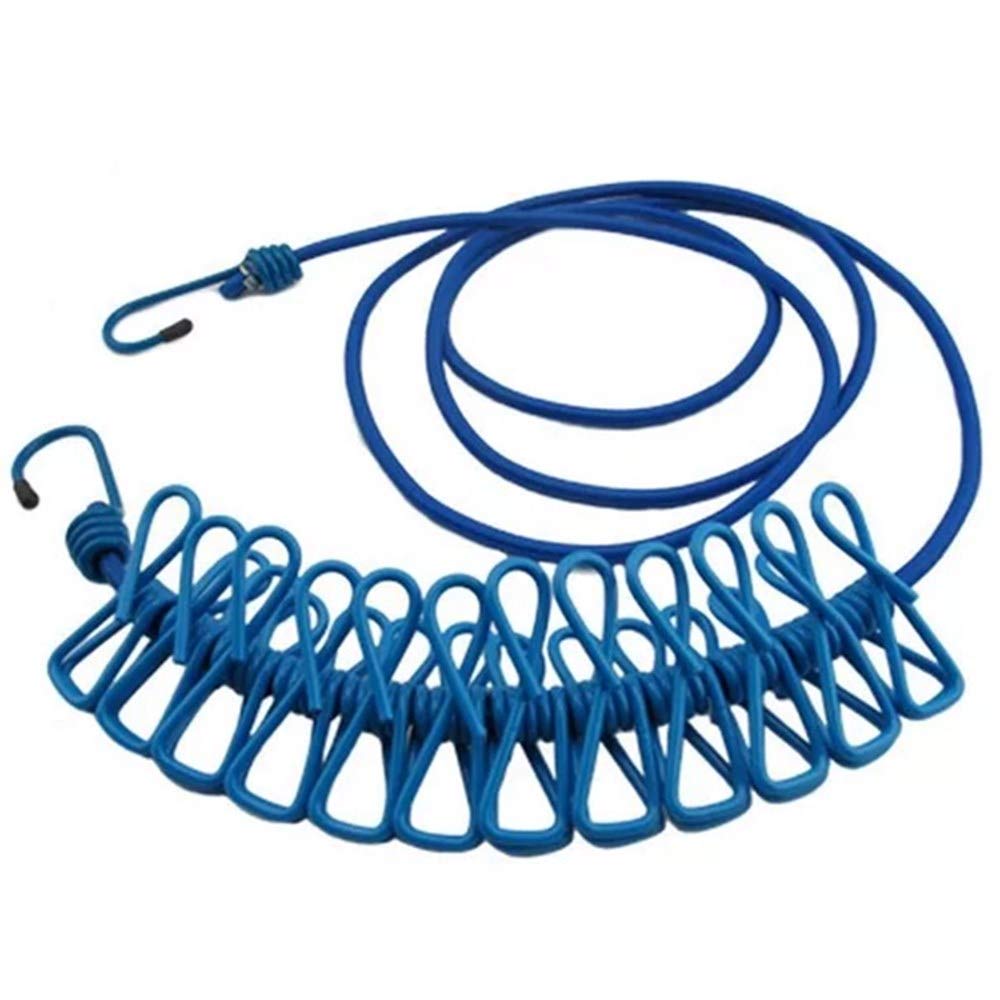
Extras And Camping Activities
This part is up to you alone! What do you enjoy doing when you go camping? You can read a book in a hammock, play the guitar around a campfire, go for a day walk, hang out by a river or lake, or ride bikes and scooters with your kids. Make sure that your camping packing checklist has items for all of the fun things you like to do.

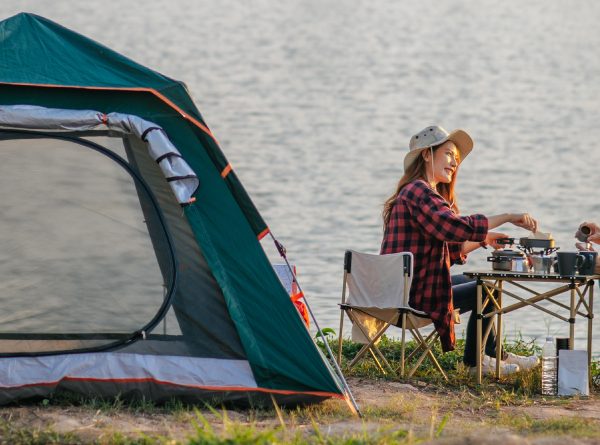
One thought on “Pack Like a Pro: The Only Camping Packing List You’ll Need”